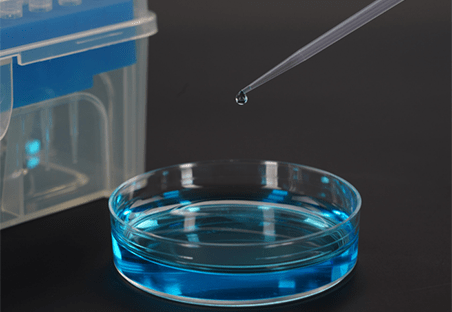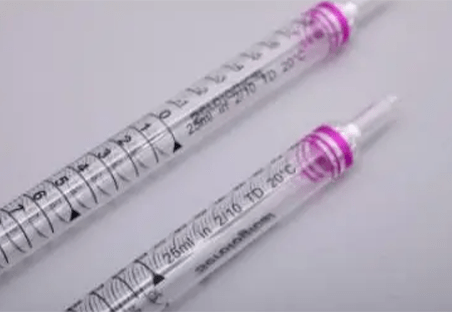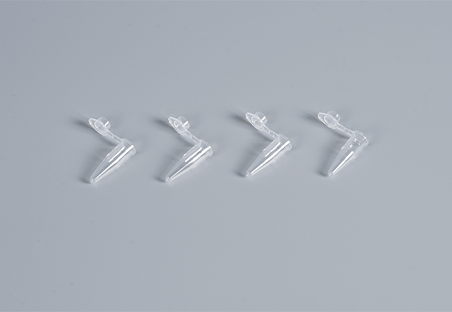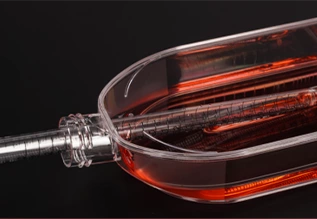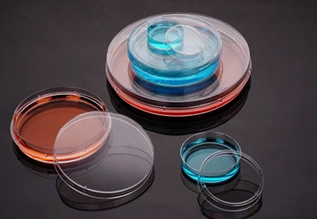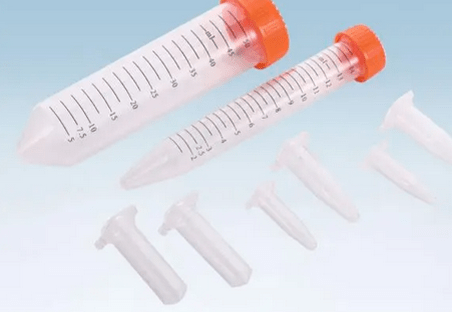Conical flasks, commonly known as Erlenmeyer flasks, are a staple in laboratories around the world. With their distinctive triangular shape and wide base, these flasks are indispensable for mixing, heating, and storing chemical solutions. However, choosing the right conical flask for your laboratory is not always straightforward. Various factors such as material, size, and design features play a crucial role in determining which flask best suits your needs.
In this article, we’ll explore the different types of conical flasks, how to choose the right one based on your specific lab needs, and key factors to consider when selecting a reliable supplier.
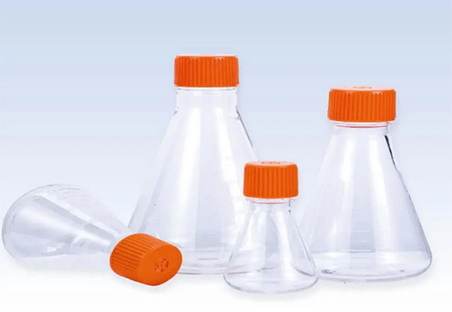
Understanding the Types of Conical Flasks
When it comes to conical flasks, several variations exist, each designed for specific applications in the laboratory. Understanding the differences is the first step to selecting the right flask.
Erlenmeyer Flask: This is the most common type of conical flask, used for mixing, heating, and swirling solutions without the risk of spillage. Its narrow neck prevents splashing, while the wide base allows for stability when placed on surfaces.
Filter Flask (Buchner Flask): Equipped with thicker walls and a sidearm for vacuum filtration, filter flasks are commonly used in microbiology and chemistry labs. Their robust design ensures they can withstand the reduced pressure during filtration processes.

Volumetric Flask: Though technically not a traditional conical flask, volumetric flasks share the triangular design but with precise calibration markings. These flasks are essential for preparing exact volumes of solutions, especially in analytical chemistry.
Each type serves a unique purpose, so understanding how they differ can help you select the right one for your laboratory’s experiments and protocols.
How to Choose the Right Conical Flask?
Selecting the appropriate conical flask involves considering several factors, including material, size, specific features and lab uses.

Material Considerations: Glass vs. Plastic
The material of the conical flask is an important factor that influences durability, heat resistance, and chemical compatibility.
- Glass Conical Flasks: Glass, especially borosilicate glass, is favored for its chemical inertness and ability to withstand high temperatures. These flasks are ideal for heating experiments or working with volatile chemicals. Glass flasks are also resistant to staining and can be autoclaved for sterilization, making them a good option for microbiology or chemistry labs where sterility is key.
- Plastic Conical Flasks: Plastic flasks, typically made of polyethylene or polypropylene, are lightweight and shatterproof, making them safer in settings where breakage is a concern, such as in educational labs or fieldwork. However, they may not offer the same heat resistance as glass and can be prone to chemical degradation when exposed to strong solvents.
Size and Volume: Choosing the Right Capacity
Conical flasks come in a variety of sizes, typically ranging from 50 mL to 1000 mL or more. The size you choose depends on the specific requirements of your laboratory work.
- Small (50–250 mL): These smaller flasks are perfect for titrations, small-scale chemical reactions, or solution preparation in research or teaching labs.
- Medium (250–500 mL): This range is versatile for general-purpose mixing, heating, or culture media preparation in biological or chemical laboratories.
- Large (500 mL–1000 mL+): Larger conical flasks are often used for bulk solution preparation, large-scale reactions, or fermentation processes.
Selecting the appropriate size ensures you have enough volume for your experiment while minimizing waste.

Key Features to Look For
Beyond material and size, several design features should be considered:
- Graduated Markings: Clear and accurate measurement markings allow for quick and reliable volume readings, ensuring precision in experiments.
- Stopper or Cap Compatibility: Some experiments may require airtight sealing. Ensure that your flask can be paired with compatible stoppers or screw caps, especially if you’re storing solutions for extended periods or preventing contamination.
- Shape and Stability: A wide base offers better stability, reducing the risk of tipping over, while a narrow neck minimizes evaporation and splashing during mixing or heating. A sidearm is a useful feature for filtration or vacuum applications. A handle can make the flask easier to handle and transport.
Conical Flask Uses in Laboratory
Choosing the right conical flask depends on the specific needs of your lab environment. Two common settings where conical flasks are essential are chemistry labs and microbiology labs, each with its unique requirements.
For Chemistry Lab
In a chemistry lab, conical flasks are frequently used for various applications such as mixing, heating, and carrying out chemical reactions. The shape of the flask, with its wide base and narrow neck, makes it ideal for stirring or swirling solutions without the risk of spillage. Chemistry labs typically benefit from glass conical flasks due to their heat resistance and chemical inertness.
- Mixing and Heating Reactions: Glass conical flasks, especially those made from borosilicate glass, are excellent for conducting reactions that require heating. They can be used over open flames or hot plates and are resistant to thermal shock.
- Titrations: The narrow neck of the flask helps reduce splashing during titrations, a common analytical procedure in chemistry labs. The stable base allows precise measurements, essential for accurate results.
- Storing Chemicals: Conical flasks are also useful for short-term storage of chemical solutions. The option to seal them with a stopper minimizes contamination and evaporation.
When choosing a conical flask for a chemistry lab, it’s essential to prioritize flasks made from high-quality glass that can withstand chemical exposure and high temperatures.
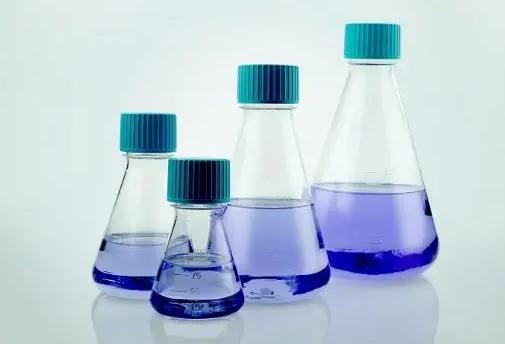
For Microbiology Lab
In microbiology labs, conical flasks serve a different but equally important role. They are frequently used for growing microbial cultures, preparing media, and other biological experiments that require sterile conditions. Microbiology labs often use both glass and plastic flasks, depending on the application.
- Culture Growth: Conical flasks, particularly those with a wide base, are ideal for growing bacterial, yeast, or fungal cultures. Their shape promotes better oxygen exchange when the flask is placed on a shaker, which is vital for aerobic organisms.
- Media Preparation: Flasks are commonly used to prepare and store culture media. Glass flasks can be autoclaved to ensure sterility, making them ideal for media that must be free of contamination. Plastic flasks can also be used, particularly for single-use scenarios or when working with less aggressive chemicals.
- Shaking Incubation: In shaking incubators, conical flasks with baffle indentations are often preferred as they increase turbulence, improving oxygenation and mixing, which is essential for promoting microbial growth.
For microbiology labs, sterility and oxygen exchange are key factors in selecting a conical flask. Opting for flasks that can be sterilized and are designed for effective shaking ensures better experimental outcomes.
Choose a Reliable Conical Flask Supplier
Selecting the right supplier for your conical flasks is as important as choosing the flask itself. A reliable supplier ensures quality, durability, and compliance with laboratory standards.
- Quality Assurance: Look for suppliers who offer flasks made from high-quality materials, such as borosilicate glass or premium-grade plastic. They should also adhere to industry standards and provide certifications of compliance.
- Range of Options: A good supplier offers a wide variety of flasks in different sizes, materials, and designs. This flexibility ensures you can find exactly what you need for your lab’s specific applications.
- Customer Support and Warranty: Consider suppliers who offer comprehensive customer support and a warranty on their products. This shows confidence in the durability of their flasks and gives you peace of mind in case any issues arise.
- Pricing and Availability: While it’s important to get quality products, competitive pricing is also crucial, especially if you’re purchasing in bulk. Check for suppliers who can provide reasonable prices without compromising on the quality of the flasks.
Choosing the right conical flask for your laboratory depends on understanding the types available, selecting the appropriate material and size, and ensuring the flask has the necessary features for your applications. Whether you’re mixing solutions, growing cultures, or conducting titrations, the right conical flask can significantly impact your results. Additionally, partnering with a reliable supplier ensures you’re getting durable, high-quality flasks that meet the demands of your lab work. By making informed decisions, you’ll ensure that your laboratory operates efficiently and safely.
